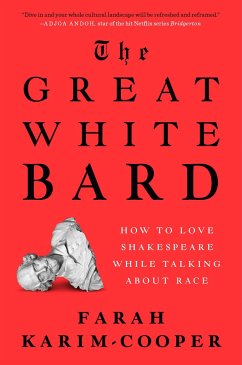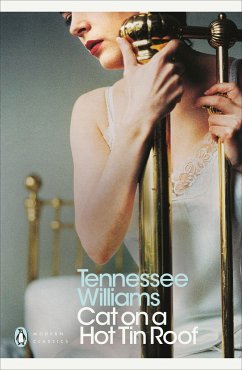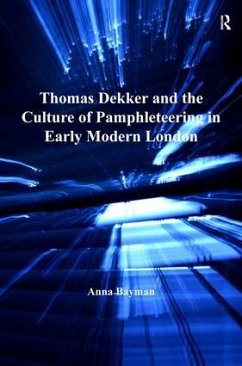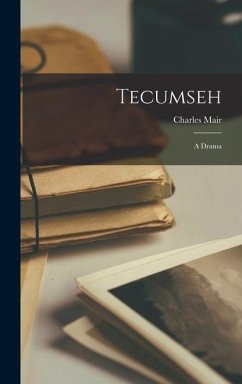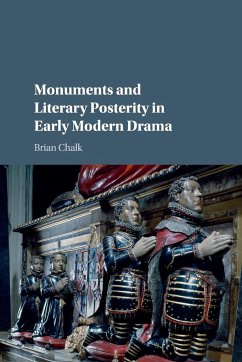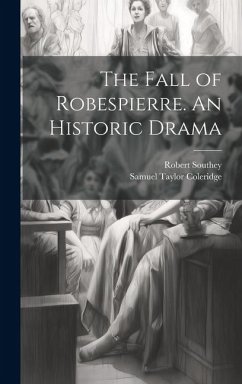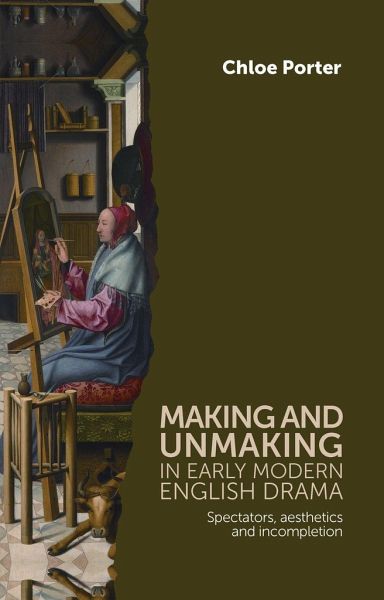
Making and Unmaking in Early Modern English Drama
Spectators, Aesthetics and Incompletion

PAYBACK Punkte
64 °P sammeln!
Why are early modern English dramatists preoccupied with unfinished processes of 'making' and 'unmaking'? And what did the terms 'finished' or 'incomplete' mean for dramatists and their audiences in this period? Making and unmaking in early modern English drama is about the significance of visual things that are 'under construction' in works by playwrights including Shakespeare, Robert Greene and John Lyly. Illustrated with examples from across visual and material culture, it opens up new interpretations of the place of aesthetic form in the early modern imagination. Plays are explored as a pa...
Why are early modern English dramatists preoccupied with unfinished processes of 'making' and 'unmaking'? And what did the terms 'finished' or 'incomplete' mean for dramatists and their audiences in this period? Making and unmaking in early modern English drama is about the significance of visual things that are 'under construction' in works by playwrights including Shakespeare, Robert Greene and John Lyly. Illustrated with examples from across visual and material culture, it opens up new interpretations of the place of aesthetic form in the early modern imagination. Plays are explored as a part of a lively post-Reformation visual culture, alongside a diverse range of contexts and themes, including iconoclasm, painting, sculpture, clothing and jewellery, automata and invisibility. Asking what it meant for Shakespeare and his contemporaries to 'begin' or 'end' a literary or visual work, this book is essential reading for scholars and students of early modern English drama, literature, visual culture and history.




